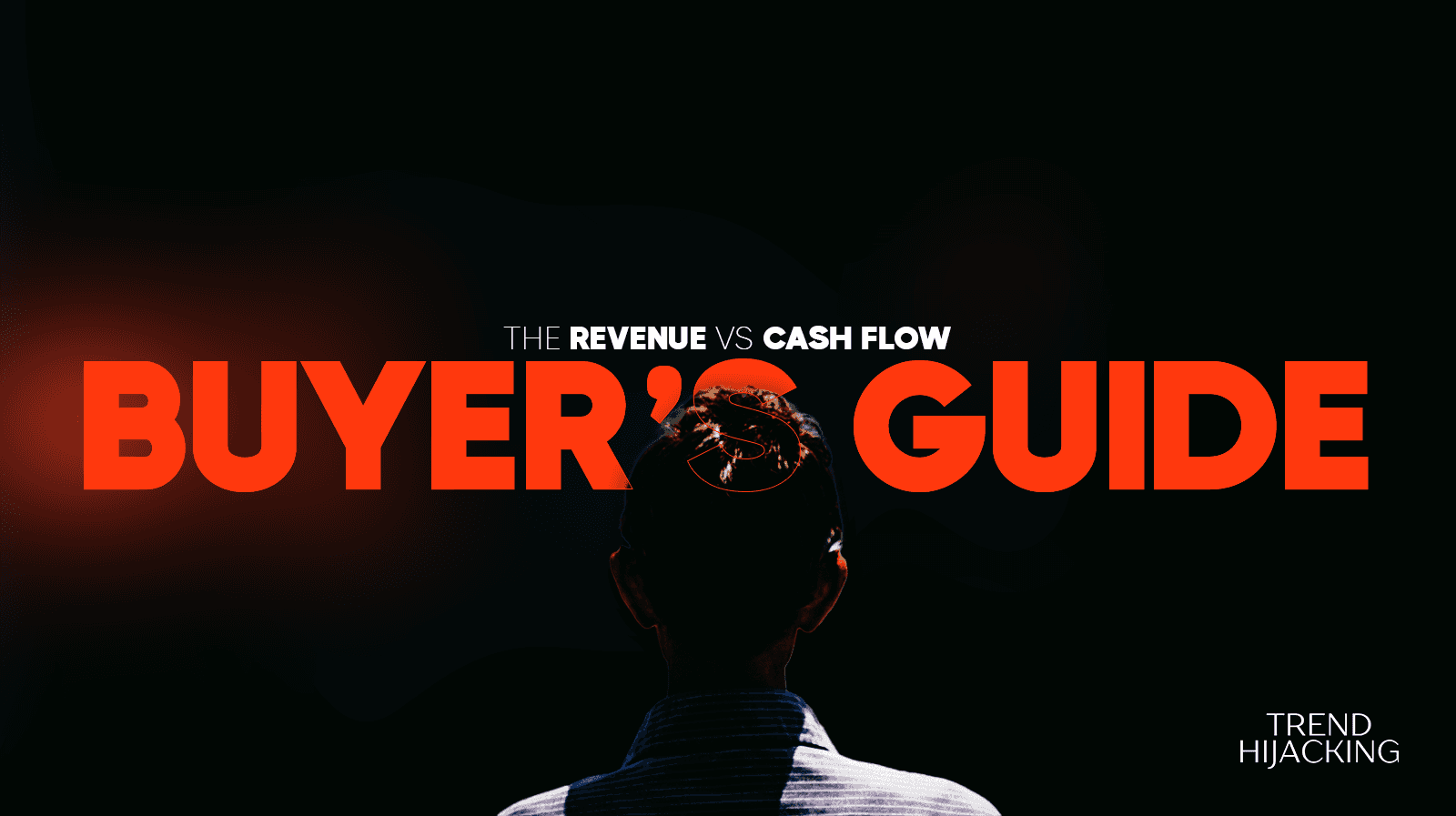How Long Does Due Diligence Take When Buying A Business
What Is Due Diligence, And When Does It Start

Due diligence simply refers to the stage where a buyer digs into all parts of the target business to verify claims and spot risks.
This process covers finances, legal, operations, contracts, tax, HR, and sometimes regulatory or technical matters.
The official due diligence usually starts after the buyer and seller sign a letter of intent (LOI) and a confidentiality agreement.
Because many tasks overlap, the “due diligence period” in a deal may start immediately after the LOI or shortly after.
We Help You Buy / Build, Manage and Scale E-commerce Brands for an EXIT
E-commerce Simplified for Busy Individuals – We handle the buying, building, and scaling, so you can focus on what matters.
Growth-Focused Strategies – From sourcing to marketing, we drive growth and prepare you for a profitable exit.
Expertly Managed Exits – We build a high-value brand designed for a Lucrative exit.
Typical Timeframes for Due Diligence
Here are common timeframes you’ll see in real deals:
Deal size/complexity | Common due diligence length |
Small business, few assets | 30-60 days |
Mid-size business | 60-90 days |
Complex/large/regulated | 3-6 months or more |
Very large or cross-border deals | Sometimes 6-12 months or beyond |
A recent study by Bayes Business School indicates that the average due diligence period increased from 124 days to 203 days in large deals.
In that same study, deals with “medium” due diligence (about 139 days) had better completion rates.
So for big deals, 4 to 7 months is common. But for a small business you know well, 30 to 60 days is more realistic.
What Affects The Time It Takes To Conduct Due Diligence

Now that we have discussed the different timeframes it takes for different deals, your next question might be…
"Why do some due diligence periods drag while others fly?"
Here are the key factors behind this:
1. Business complexity
The complexity of the business you wish to buy largely influences how long it takes to complete its due diligence. If the target business has many divisions, international operations, multiple product lines, or regulated sectors, you’ll need a deeper review. And this translates to more time.
2. Data readiness
If the seller’s financials, contracts, tax records, and operations documents are clean, organized, and digital, the process will be a bit faster. But the opposite is also true; if the crucial business documents are missing, inconsistent, or in paper form, that slows you down.
3. Number of issues found
If your first pass uncovers anomalies or red flags (hidden liabilities, pending lawsuits, unclear contracts) within the business on sale, you’ll most likely request deeper follow-ups. This will only prolong the process by days or weeks.
4. Team and resources
Do you have an experienced legal, accounting, and ops team to handle the review process for the business you’re about to buy? If yes, you’ll move faster. But if you’re relying on overworked advisors or one person doing many tasks, then you should expect delays.
5. Negotiations and extensions
Sometimes, the buyer and seller can agree to extend the time for due diligence if they need more review. Sometimes that’s built in.
6. Regulatory or third-party reviews
If the business needs regulatory approvals or third parties (e.g., customers, landlords, government) must approve parts of the deal, those external waits add delay.
7. Time zone, language, or cross-border factors
When a deal involves businesses in different countries, the process naturally slows down.
Time zone gaps can delay communication and document reviews, while language differences may require translation of contracts and reports.
On top of that, varying legal systems, tax rules, and compliance standards add extra steps that extend the due diligence timeline.
Here’s A Sample Timeline To Consider:

Here’s how a due diligence period might unfold in a 60-day deal:
Days 1–7: Seller grants access to data room, you collect basic documents (financials, contracts, org charts).
Days 8–20: Your team reviews finances, legal, contracts, and operations. You raise questions.
Days 21–35: Deep dive on flagged items (tax audits, litigation, customer contracts). External advisors (valuers, engineers) may work here.
Days 36–50: You refine findings, negotiate adjustments, and prepare the due diligence closing report.
Days 51–60: Final rounds of check, signoffs, and you decide whether to go ahead, renegotiate, or walk away.
If everything proceeds well throughout the whole process outlined above, then you hit day 60 and move to closing.
HOWEVER, if you discover surprises along the way (or red flags), you may have to extend another 2 to 4 weeks or more.
Risks of Too Short or Too Long Due Diligence Period

Rushing through due diligence or letting it drag on for too long can both hurt the deal.
When the process is too short, buyers often miss key issues such as hidden debts, inflated earnings, or unresolved legal problems.
Unfortunately, these can lead to overpaying or facing costly surprises later.
On the other hand, when due diligence takes way too long, momentum fades.
Sellers can easily lose patience, buyers get deal fatigue, and competitors might step in with better offers.
Research from Bayes and Intralinks found that deals with a medium-length due diligence period (around 139 days) were more likely to close successfully.
In contrast, those that were rushed or drawn out had higher failure rates.
For small business sales, a 45–60 day window usually strikes the right balance.
This period is long enough to uncover risks, but short enough to keep both sides engaged.
We Help You Buy / Build, Manage and Scale E-commerce Brands for an EXIT
E-commerce Simplified for Busy Individuals – We handle the buying, building, and scaling, so you can focus on what matters.
Growth-Focused Strategies – From sourcing to marketing, we drive growth and prepare you for a profitable exit.
Expertly Managed Exits – We build a high-value brand designed for a Lucrative exit.
Tips To Speed Up Due Diligence When Buying A Business

Sometimes you just want to move fast, but not at the cost of missing something important.
Below, we share some proven ways to keep due diligence accurate and efficient:
• Start prep early: Before signing the LOI, ask the seller to gather key records like financial statements, contracts, and tax filings. Being organized up front saves weeks later.
• Use a virtual data room: Store and share documents in a secure online platform so everyone can access the latest files without endless email exchanges.
• Run tasks in parallel: Divide the work into tracks—financial, legal, and operational—so each team can investigate at the same time instead of one after another.
• Line up advisors early: Bring your accountants, lawyers, and industry experts on board before due diligence starts so they can jump in as soon as documents are ready.
• Focus on key risks: Spend more time on areas that could break the deal, like financial accuracy or major contracts, instead of reviewing everything equally.
• Set firm response deadlines: Keep the process moving by setting internal timelines and following up daily for updates and missing data.
• Plan for possible delays: If issues come up, having pre-agreed extension options in your LOI helps avoid last-minute disputes and keeps both sides aligned.
When Should You Expect Delays?

Even with good planning and clear communication, delays can still pop up. Common causes include:
• Slow document delivery: The seller may take time to gather or approve files.
• Unresponsive third parties: Banks, landlords, or regulators can drag their feet when providing confirmations or approvals.
• Serious red flags: Major issues found during review might require extra investigation or new documents.
• Poor organization: Disorganized or missing records can stall every part of the process.
• Cross-border challenges: Legal or tax matters in another country often need specialist advice, which adds time.
When delays start showing early, don’t ignore them. Use the extension clause in your LOI or renegotiate the timeline right away to keep the deal on track.
Buying A Business Due Diligence FAQs:
Below, we take a closer look at some of the commonly asked questions on how long it takes to conduct due diligence when buying a business.
1. How long is due diligence when buying a business?
Due diligence when buying a business usually takes between 30 and 90 days for small to medium deals. Larger or more complex businesses often need three to six months. The exact length depends on how organized the seller’s records are, how many issues appear, and how fast both sides respond.
2. How long does the due diligence process take?
The due diligence process typically takes one to three months for most business sales. Financial reviews, legal checks, and operational assessments happen during this time. Deals that involve multiple locations, cross-border operations, or heavy regulation can stretch longer. Clean records and fast communication help shorten the total review period.
3. What is the timeline for due diligence?
A standard due diligence timeline runs 30 to 60 days. The first two weeks focus on collecting and reviewing documents, followed by deeper checks and follow-up questions. The final weeks are used for analysis and negotiation adjustments. Some deals include optional extensions if unexpected issues or delays occur during the review phase.
4. How long do acquisitions take after an announcement?
After a public acquisition is announced, closing can take three to six months, depending on approvals, financing, and due diligence. Regulatory reviews, shareholder votes, or antitrust checks often slow large deals. Smaller private acquisitions usually close faster once both sides finish due diligence and finalize the purchase agreement.
The Bottom Line
So, how long does due diligence take when buying a business? For most small to medium deals, expect 30 to 90 days. Larger or more complex transactions can take three to six months or longer.
The key is to stay in the sweet spot; thorough enough to uncover risks, but not so drawn out that momentum fades.
With solid preparation, the right team, and firm deadlines, you should be able to keep the whole process both efficient and reliable.
Let’s Help You Buy A Business That Grows
Our Smart Acquisition Program helps you find and buy a growth-ready e-commerce business without retainers or equity loss. We guide you through every step of the way— from sourcing and due diligence to scaling. In just 60 days, you’ll own a profitable online business built to grow.
A Done-For-You E-commerce Business
Discover how we Build, Launch, and Scale a 6-figure/month Business for You
Learn more
The 6-Step Blueprint to E-Commerce Acquisition
See how we Acquire, Convert, and Scale with Real Case Studies to Prove It.




















